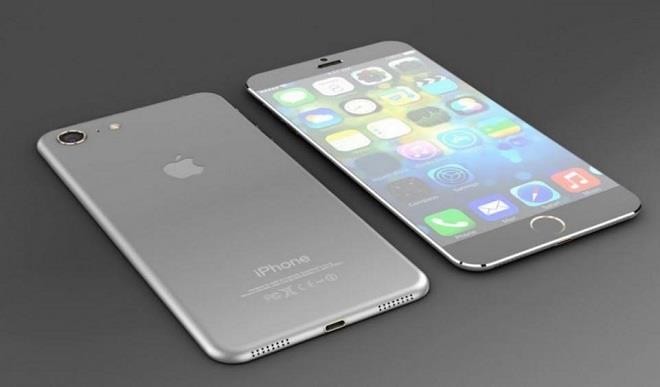Apple and iPhone at a crossroad!
Since iPhone 6 was released in September 2014, Apple’s revenue and capitalization have grown exponentially, and last summer, the company became the first ever to hit the one trillion dollar capitalization target of any publicly-traded entity, with a share price of $207.39 to boot. However, on 3 January 2019, Apple traded lower than $142.64 a […]

Since iPhone 6 was released in September 2014, Apple’s revenue and capitalization have grown exponentially, and last summer, the company became the first ever to hit the one trillion dollar capitalization target of any publicly-traded entity, with a share price of $207.39 to boot. However, on 3 January 2019, Apple traded lower than $142.64 a share. Worse still, the company announced last week that it was going to miss its projected revenue for this quarter by billions of dollars.
What is happening to Apple (iPhone sales) is reminiscent of the adage that, on the surface of the earth, what goes up must come down. After all, was it not in 1997 that Steve Jobs brought the company back from the brink of bankruptcy, but its lot has been rising since then – though astronomically from 2014? Will Apple (iPhone) continue to soar? The answer is almost an emphatic No. To partly see this, you just need to remember that no one or entity has perpetual monopoly over innovation. After all, empires rise and fall. But why is Apple falling?
First of all, there is the current meltdown of the economy in China, where iPhone is very popular. Then there is the trade war between the US and China in which Apple appears to be collateral damage. Thirdly, there is the emergence of cheap and good phones from China. Another contributing factor is the saturation in the demand for smartphones. For example, I still use my Galaxy Note 4 – released in 2014 – on a daily basis. Another contributor to Apple’s problem is the current reliance on a single product – the iPhone.
Which of these five factors is the most paramount for Apple? While the problem connected with China – slow economy in China and the cold war – are significant, they are not the most important per se. To be sure, Apple reportedly has 41 stores and hundreds of millions of iPhones sold in China, and arguably no American company is as successful in China as Apple. As some put it, Apple’s breakthrough in China might as well be the legacy that the CEO Tim Cook will leave behind as the successor to the legendary Steve Jobs. Apple’s business in China matured from a struggling status to its present position where the company earns annual revenues from China of approximately $50 billion, in spite of Beijing’s current tight control over the internet and the effective shutting out of other American tech giants.
To reciprocate China, Apple has set up two Research and Development centers in China, invested $1 billion in the Chinese ride-sharing company Didi Chuxing, and created a new position, Head of China, that reports directly to Mr. Cook. The Chinese born Ms Isabel Ge Mahe was appointed to this role. Furthermore, Apple also complies with Chinese orders to store its data on Chinese-run servers and to pull certain apps, such as the New York Times app, from its App Store. These are apps that otherwise allow Chinese users to get around censorship that currently blocks sites like Facebook and Twitter.
Then there is the trade war between the US and China, in which Apple’s Cook thinks his company, might be collateral damage. The trade war has its origin from US law makers who want China to play fairly in trade negotiations with the US and to stop the theft of American intellectual properties. There is also the complaint that China doesn’t play by the rules and that the country uses equipment manufactured by its tech companies to spy on the US and other Western companies. So, what you have are legal and regulatory efforts in Washington that are making it difficult for Chinese tech companies, particularly Huawei, to sell their phones and telecom equipment in the US. Apple is concerned that it might face reprisals from China, independent of the goodwill that the company has planted in China.
Perhaps the most potent causes of Apple’s rapid slowdown are the competition from China and the absence of radical innovation. Raymond Zhong in his 4 January 2019 article in The New York Times goes to a great length to support his feeling that Apple’s biggest problem is the emergence of cheap and valuable phones from China. Before now, Apple’s iPhone sales in China represent a quarter of the company’s worldwide sales, but this is changing in light of the local competition in China. Remember that toward the end of last year, Huawei displaced Apple as the second largest phone manufacturer in the world (after Samsung). Though competition with iPhone from the East on quality is debatable, the price points are not. That is, Made-in-China phones are just cheaper. As the economy in China slows down, affordability is bound to be an important factor in acquiring a phone.
Perhaps the elephant in the room is innovation. What propelled Apple to the top is innovation, and what will keep it there will be more innovation. Sadly, for the past four years, we haven’t seen much of this. Again, you just need to remember that no one entity has perpetual monopoly over innovation; meaning that iPhone may be facing its eventual death.
